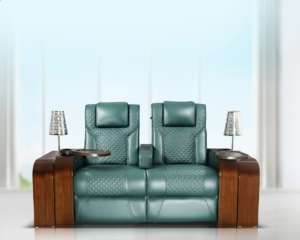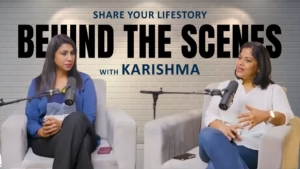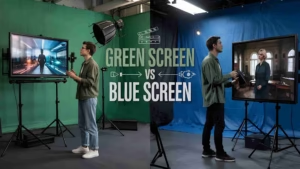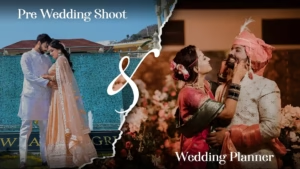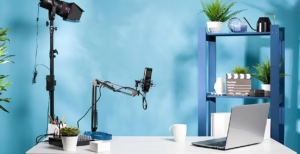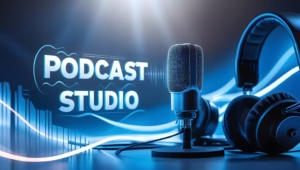Introduction: Are Podcast and Interview the Same?
In today’s online world, listening to things like shows and talks has become a regular part of life. Whether we’re out for a walk, going to work, or just sitting at home, many of us like to listen to people who talk about stories, ideas, or helpful tips. Two common types of this kind of content are podcast and interview.
At first they might seem the same, just people talking and sharing thoughts. But if we pay more attention, we’ll see that podcast and interview are actually quite different. They have different purposes, different styles and different ways of connecting with people who are listening. human
What is a Podcast?
Many podcasts are worth listening to and are somewhat of a conversation that can be downloaded on a cellphone or computer. Such shows include episodes like a TV series only audio is involved. Something else is health, humor, news, business, and true-life stories, among other areas discussed. Sometimes it’s just a host talking away; at other times, an ensemble-type discussion or guests are brought in.
This is also one reason why the podcasting world is so much fun: it is relaxed and informal. The speaker seems to carry on a one-on-one conversation with you. Because there is so much multitasking in listening while doing it, like driving, cooking, walking, and just hanging out with friends. There are many apps to get podcasts in this search, such as Spotify, YouTube, or Apple Podcast.
🎙️ Launch Your Podcast with a Leading Podcast Production Agency! Expert production, editing & distribution.
What is an Interview?
An interview is a conversation where one person asks questions and the other answers. For the interview an interviewer is a questionnaire, and an interviewee is an answer. The interview is conducted to find out something to grasp someone’s thoughts, or to listen to their stories.
Interviews can be carried out in several modes: face to face, telephonic, through video calls, and even in writing. Interviews can be found in newspapers, on blogs, in podcasts, on YouTube, or television.
Compared to podcasts, interviews are usually stricter about talking to a sole individual or talking about one subject. Also, they are typically not very much repeated as a weekly or regular show.
🎤 Capture Your Story with a Professional Interview Shoot! High-quality video, crisp audio, and expert editing book your session today!
Purpose: Why Are They Created?
Purpose of Podcasts
Some reason for the birth of a podcast would be to inform, to entertain, or inspire people. Some podcasters do try to form a kind of binding connection with the listeners by regularly-spaced new episodes being aired. After some time, the listeners start to feel a bond with the host, who almost seems like a friend in their ears. Some podcasts are about teaching, some are just plain storytelling, while others are fun conversations or deep discussions on various topics.
Purpose of Interview
The interview queries are specifically seeking information from a certain person. This information may include their thoughts, learning from their experiences, or simply their stories. The interview itself is usually more about the subject than the one interviewing. Once the interview is concluded, that is usually the end of that particular conversation-unless it is part of a following longer series or show.
Format and Structure: How Do They Flow?
Podcast Format
Some reason for the birth of a podcast would be to inform, to entertain, or inspire people. Some podcasters do try to form a kind of binding connection with the listeners by regularly-spaced new episodes being aired. After some time, the listeners start to feel a bond with the host, who almost seems like a friend in their ears. Some podcasts are about teaching, some are just plain storytelling, while others are fun conversations or deep discussions on various topics.
Purpose of Interview
The interview queries are specifically seeking information from a certain person. This information may include their thoughts, learning from their experiences, or simply their stories. The interview itself is usually more about the subject than the one interviewing. Once the interview is concluded, that is usually the end of that particular conversation-unless it is part of a following longer series or show.
Tone and Style: Formal vs Casual
Podcasting Style
Podcasts are typically designed and created to feel warm and personal. The hosts usually convey an attitude that feels almost like they’re talking directly and solely to just one listener. It really is a chatty and disjointed affair with tangents-on-purpose, jokes, social commentary and, more often than not, anecdotes involving their events. It is this rather easy-breezy, unscripted style that makes a person feel included in the conversation.
Interview Style
In an interview, the issues that are covered are often more serious and focused. The show is all about making sure that all eyes are on the interviewees, while investigating and probing into what they have to say. Even if the conversation is easygoing and is never rushed or pushy, the interviewer should, as much as possible, keep himself away from overimposing his own steam into the whole agenda, save for instances when his views can make the conversation more interesting. The overall expectation is soliciting helpful anecdotes or useful information from the guest.
Production: How Are They Made?
Listeners to podcasts: are those who become deeply loyal to shows that capture their interest. They tune in for new episodes and slowly develop a kind of familiarity with the host over time. Many of these listeners may be heard discussing the show with friends or online each week after they are gone with the airplay; some comment or even write a review on their favorite show. For many listeners, tuning into podcasts has become an activity they do on their way to work, keep fit, or relax at home.
Interview listeners: refer to viewers or listeners who are often interested in either the guest or the topic of conversation. Usually, they then drop out as soon as they have the answers they are looking for. People may disengage if the interviewer was not familiar to them or if their interviews were not part of an ongoing series. Unlike podcasts, interviews just don’t have the pulling power.
Audience Engagement: Who Listens and Why?
Podcast Listeners
Becoming an avid fan of podcast listening takes time for many of them. They look forward to new episodes and begin to feel intimate with the host of the show. Returning to the podcast almost every other week is something that many listeners do. They often talk about the show with friends or online discussions, and most also leave comments or reviews. For many, listening to a podcast has become a part of the daily routine, in walking, driving, exercising or simply lounging at home.
Interview Listeners.
Those who watch or read interviews usually have an interest in the guest or the topic talked about during the interview. By the time they get the right answers, they usually stop there. If there is no regular interview series or if the person asking questions does not have much recognition, that audience just does not come back for more. Interviews, just like podcasted interviews, seldom forge a strong connection with the audience.
Examples: Real-World Differences
Popular Podcasts
Not all but certainly some good examples of this feature would be Podcasts such as The Joe Rogan Experience and How I Built This. Podcasts mostly follow the same feel, aim and togetherness with the audience even if the guests join the podcast on most occasions. That is why people want to keep coming back for more.
Simple Interviews
Now imagine a reporter interviewing a cricketer after a match or a doctor asked about a new treatment. Typical and ordinary: interviews that seek to collect useful information or hear one’s story. The interviewer mostly just helps to move the question along.
Branding and Long-Term Value
Podcast as a Brand.
Podcasts usually become much more than shows. They adopt names over time, logos, theme music, and a special way to connect with listeners, along with becoming regular fans coming back again and again. Some evolved to bigger things, like books, live events, or even selling products. A good podcast may become something worth having for the creator.
Interview as a one Time Event.
Interviews are typically a once-off talk unless they’re part of a massive show or event. They rarely build a brand. Mostly, a listener remembers the guest rather than the name of the interviewer. Some interviewers do build a fan club, yet most interviews are more a one-time show and don’t lead to anything broader.
Conclusion: Difference Between Podcast and Interview
Podcasts and interviews may feel under-similar; however, these two things are totally different in many ways. A podcast is an amazing creative show which continues to be released on different episodes. It keeps listeners glued to the host most of the time by giving them personal stories, an extensive variety, and relaxed style.
An interview can be defined as a taped sequence of recordings or a one-on-one conversation where learning occurs specifically from a particular individual. Usually, the duration is relatively short and more inclined towards about-the-guest’s-thoughts-or-experience.
They are both measurably important. When listeners desire to be in touch with one voice over time and would love a wide range of subjects covered, a podcast fits the bill. On the other hand, if one wants answers or insights from an authority on a particular subject, perhaps he should consider an interview as a vehicle. Knowing that difference makes it much easier for everyone to make decisions about what to listen to-or even create-for themselves.


